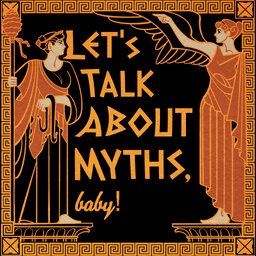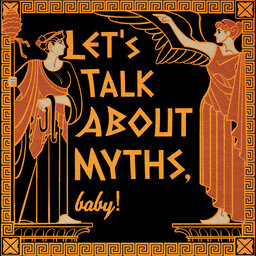TFW Maybe You Did Actually Do The Thing You’re Accused Of, Oops (Sophocles’ Oedipus Tyrannos Part 2)
Oedipus defends himself against the accusations, but there's much more to the death of Laius than he understands... Plus, gods so many prophecies! Help keep LTAMB going by subscribing to Liv's Patreon for bonus content!
CW/TW: far too many Greek myths involve assault. Given it's fiction, and typically involves gods and/or monsters, I'm not as deferential as I would be were I referencing the real thing.
Sources: Short excerpt from Homer's Odyssey, translated by Samuel Butler; Oedipus Tyrannos (sometimes called Oedipus Rex or Oedipus the King): short quotes are from the translation by Frank Nisetich, passages quoted from Richard Jebb translation. Other editions/translations referred to: David Mulroy, and Robert Fagles.
Attributions and licensing information for music used in the podcast can be found here: mythsbaby.com/sources-attributions.
 Let's Talk About Myths, Baby! Greek & Roman Mythology Retold
Let's Talk About Myths, Baby! Greek & Roman Mythology Retold


